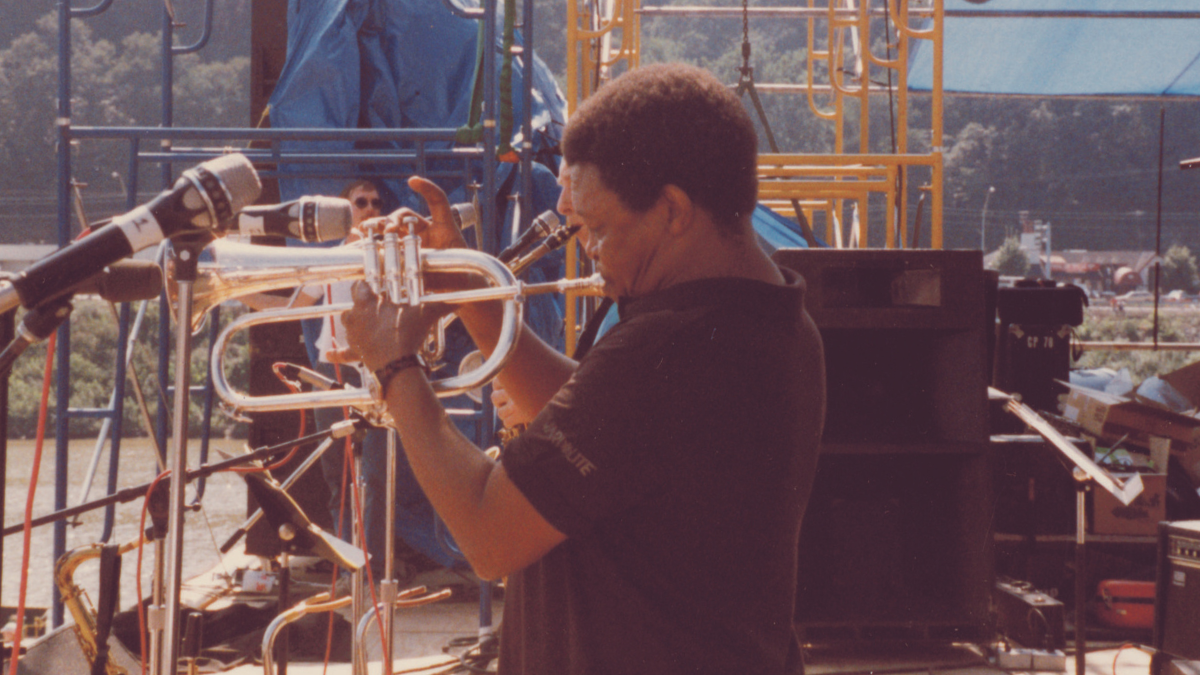“Around the world it’s just a simple song.” – Mountain Stage theme, composed by Larry Groce.
This week’s premiere broadcast brings you music from all corners of the globe with a Mountain Stage special called “Around the World It’s Just a Simple Song.”
Our Song of the Week is by Hugh Masekela, the South African trumpeter and activist who performed the popular anti-apartheid song “Bring Him Back Home” (referring to Nelson Mandela) twice on Mountain Stage. First in 1989, and again in 1994.
This version is from the latter appearance recorded in Charleston, West Virginia, two days before Nelson Mandela was inaugurated president of his home country. Emotions ran high that night. Masekela lived in exile from 1960 – 1990, returning only after Mandela was released from 27 years in prison. Hugh left West Virginia the next morning, bound for Pretoria, to be present for Mandela’s inauguration. Hugh Masekela died in 2018.
This special episode also features performers such as June Tabor, Angelique Kidjo, Miho Hatori, Beausoleil, Ali Farka Touré, Zakir Hussain, and many others.
Check out the playlist for a preview, and join us on one of these affiliate stations starting Friday, Feb. 28 to hear the full episode.
